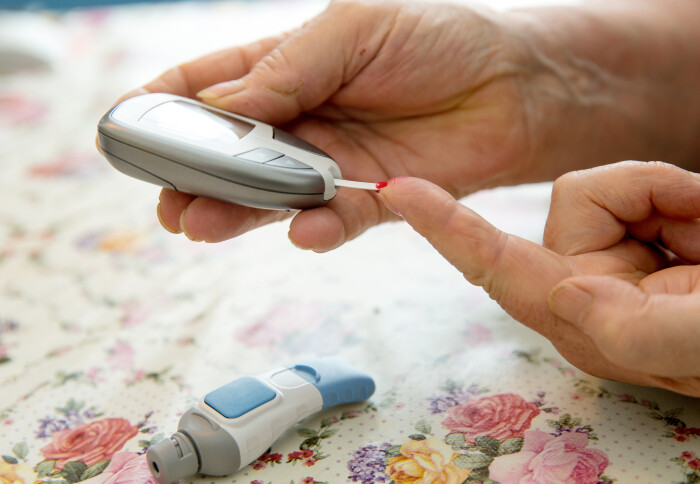Type 2 diabetes can cause lung disorders, new study finds

New research reveals for the first time that high blood sugar levels in type 2 diabetes can play a causal role in lung disorders.
New research funded by Diabetes UK has revealed, for the first time, that type 2 diabetes can directly cause lung complications. In the largest ever genetic study to explore how genes affect blood sugar levels and health outcomes, researchers concluded that lung disorders should now be considered a complication of type 2 diabetes.
The quality of life of people living with diabetes can be affected by multiple complications, and our research suggests that lung disease is one under-recognised feature of this condition. Dr Ben Jones Senior Clinical Research Fellow, Department of Metabolism, Digestion and Reproduction
Type 2 diabetes is a complex condition where the insulin made by cells in the pancreas doesn’t work properly, or the pancreas doesn’t produce enough insulin. This can lead to dangerously high blood sugar levels, which over time can damage organs and tissues in the body, causing serious complications such as kidney failure, eye and foot problems, heart attacks and stroke. More than five million people in the UK are now living with diabetes, and 90% of these have type 2.
Previous studies have shown that lung conditions including restrictive lung disease, fibrosis and pneumonia, are more common in people with type 2 diabetes. However, until now, it was not known whether type 2 diabetes directly causes damage to the lungs or if other factors, common to both type 2 diabetes and lung conditions, are responsible.
The team of researchers, including Dr Ben Jones from Imperial's Department of Metabolism, Digestion and Reproduction, analysed data from a diverse group of nearly 500,000 participants of 17 major studies, including the UK Biobank. Controlling for factors including smoking and sedentary behaviour, the team used a statistical technique called Mendelian randomisation to understand whether high blood sugar levels were linked to impaired lung function, and whether one was causing the other. Lung function was measured using two common spirometry tests used to diagnose lung conditions.
The analysis revealed that high blood sugar levels in people with type 2 diabetes directly impaired lung function. For example, modelling of the study data showed that an increase in average blood sugar levels from 4 mmol/L to 12 mmol/L, could result in a 20% drop in lung capacity and function.
With respiratory disease the third biggest cause of death in England, and hospital admissions for respiratory diseases in England and Wales doubling over the last 20 years, the findings highlight the need for healthcare professionals to be vigilant to lung complications in people with type 2 diabetes. Diagnosing and treating lung disorders early could potentially save the lives of thousands of people with type 2 diabetes.
Professor Inga Prokopenko, study lead from the University of Surrey, said: “Our research provides the first evidence that high blood sugar levels in type 2 diabetes, can directly lead to lung damage. We hope our discovery that impaired lung function is a complication of type 2 diabetes is the first step towards increased awareness among healthcare professionals, leading to earlier diagnosis and treatment of lung conditions.”
Speaking about the study, Imperial's Dr Ben Jones, senior author of the investigation, noted: “Type 2 diabetes prevalence is increasing and affecting people at younger and younger ages. The quality of life of people living with diabetes can be affected by multiple complications, and our research suggests that lung disease is one under-recognised feature of this condition. We hope that further studies will examine whether monitoring lung function should be part of routine care for people with diabetes.”
Highlighting the importance of this research, Dr Elizabeth Robertson, Director of Research at Diabetes UK, said: "This important research answers a long-standing question, revealing for the first time, that lung disorders can be a direct complication of type 2 diabetes.
“These results are a reminder of the seriousness of type 2 diabetes, and the importance of supporting people with the condition to manage their blood sugar levels so that they can live well with the condition and avoid future complications.
“Lung conditions can be life-changing and life-limiting, and it is crucial that healthcare professionals are aware of the impact of high blood sugar levels on lung health. Research must now investigate how best to prevent, monitor and treat lung disorders in people with type 2 diabetes. This could help stem the rising number of lung-related hospital admissions and potentially save thousands of lives.”
Article supporters
Article text (excluding photos or graphics) © Imperial College London.
Photos and graphics subject to third party copyright used with permission or © Imperial College London.
Reporter
Benjie Coleman
Department of Surgery & Cancer